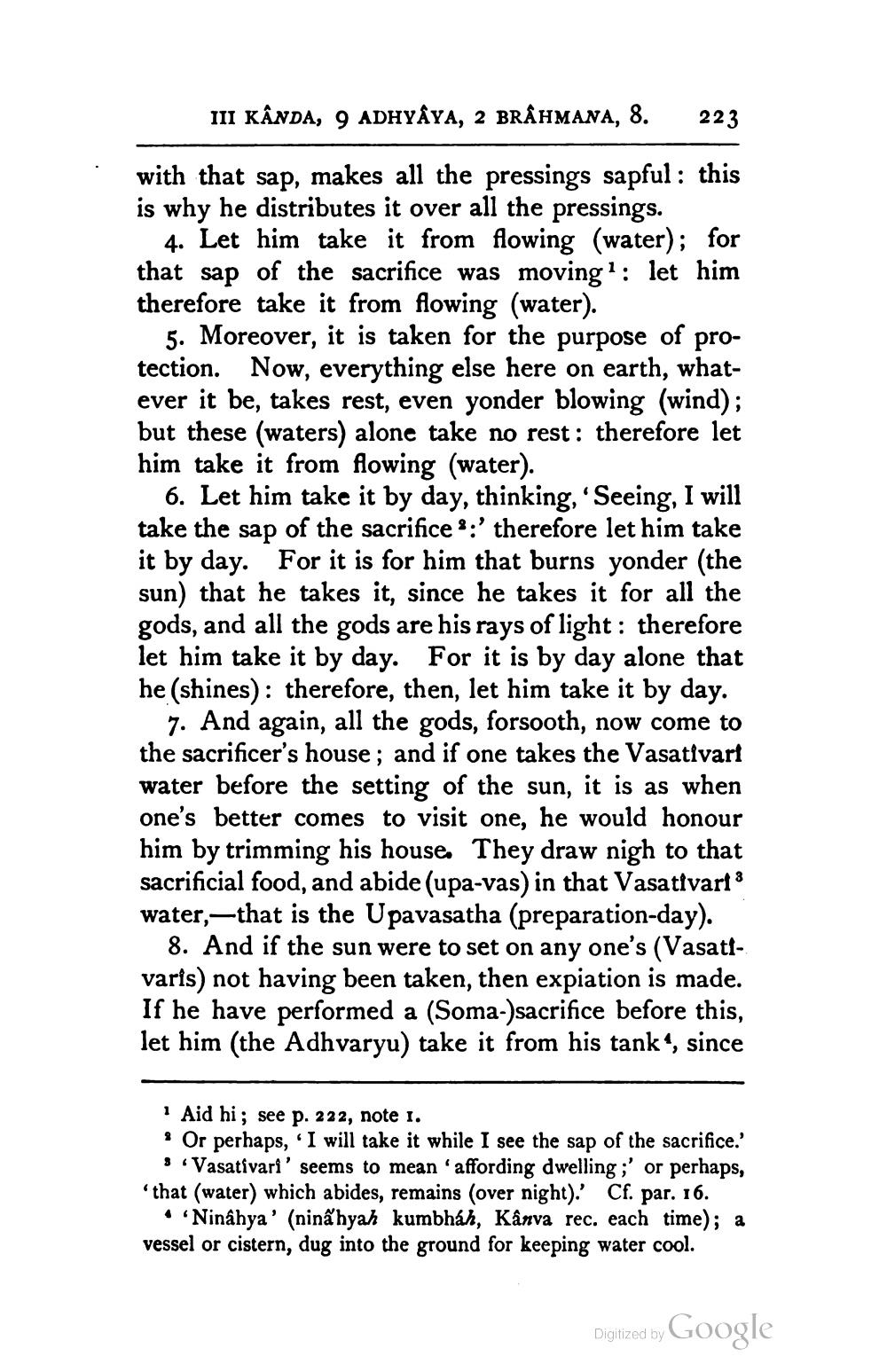________________
III KÂNDA, 9 ADHYÂYA, 2 BRÂHMANA, 8.
223
with that sap, makes all the pressings sapful: this is why he distributes it over all the pressings.
4. Let him take it from flowing (water); for that sap of the sacrifice was moving 1: let him therefore take it from flowing (water).
5. Moreover, it is taken for the purpose of protection. Now, everything else here on earth, whatever it be, takes rest, even yonder blowing (wind); but these (waters) alone take no rest : therefore let him take it from flowing (water).
6. Let him take it by day, thinking, 'Seeing, I will take the sap of the sacrifice ::' therefore let him take it by day. For it is for him that burns yonder (the sun) that he takes it, since he takes it for all the gods, and all the gods are his rays of light : therefore let him take it by day. For it is by day alone that he (shines): therefore, then, let him take it by day.
7. And again, all the gods, forsooth, now come to the sacrificer's house; and if one takes the Vasatsvart water before the setting of the sun, it is as when one's better comes to visit one, he would honour him by trimming his house. They draw nigh to that sacrificial food, and abide (upa-vas) in that Vasatsvart 3 water,—that is the Upavasatha (preparation-day).
8. And if the sun were to set on any one's (Vasativaris) not having been taken, then expiation is made. If he have performed a (Soma-sacrifice before this, let him (the Adhvaryu) take it from his tank“, since
Aid hi; see p. 222, note 1. . Or perhaps, I will take it while I see the sap of the sacrifice.'
s Vasativari' seems to mean'affording dwelling;' or perhaps, 'that (water) which abides, remains (over night).' Cf. par. 16.
• Ninâhya' (ninähyah kumbháh, Kânva rec. each time); a vessel or cistern, dug into the ground for keeping water cool.
Digitized by Google




